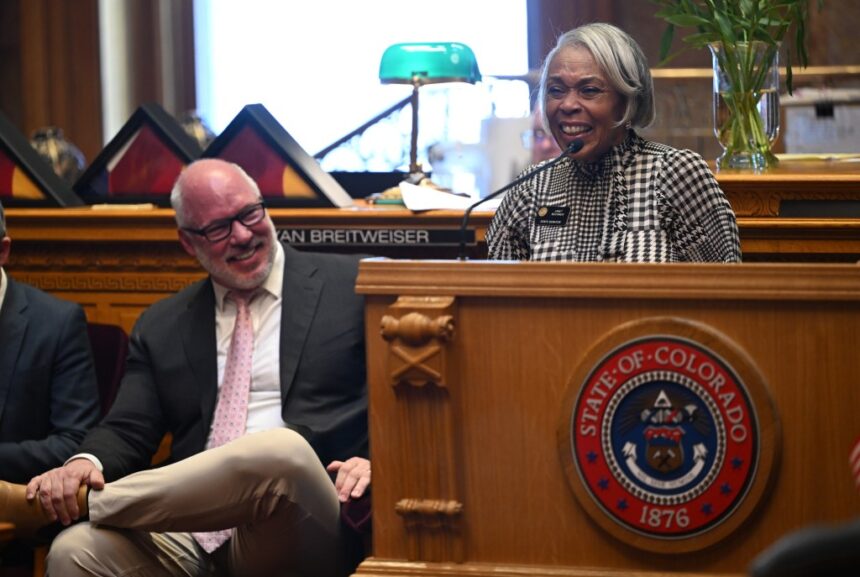State Sen. Janet Buckner, an Aurora Democrat, announced Thursday that she plans to resign at the start of the legislative session in January.
Buckner is the second senator to announce their resignation in the weeks following their reelection. She was unopposed in her Nov. 5 reelection.
Buckner has served in the legislature since 2015, when she was selected to replace her husband, state Rep. John Buckner, after his death. She was first elected to the Senate in 2020.
“After a personally challenging year, it is time for me to step aside and prioritize my family and health,” Buckner said in a statement.
Her legislative achievements include implementing the state’s universal preschool program, a law against discrimination based on hair traits historically associated with race, and addressing maternal mortality.
“My journey in public service began nine years ago after my husband, John, passed away, and it has been a joy and honor to build on his legacy and forge a path of my own,” Buckner said. “I am extremely proud of the work he and I did to ensure that every child has access to a quality education and every Coloradan has the opportunity to succeed.”
In a statement, Gov. Jared Polis called her “a friend and champion for the people of our state and Aurora.”
“From her focus on issues like free preschool, education, saving people money on health care and so much more, she has put the people of Colorado first,” Polis said in a statement. “… When her husband John passed away in 2015, Janet didn’t hesitate to step up and powerfully build upon the legacy of his service. Janet and John are giants of the community and will leave a lasting legacy.”
Her resignation announcement follows that of Denver Sen. Chris Hansen, a Denver Democrat who also formally submitted his resignation letter Thursday.
Hansen had previously announced he would be leaving to serve as CEO of the Durango-based La Plata Electric Association. Both will officially step down Jan. 9, the day after the next legislative session begins.
Democrats hold 23 seats in the chamber to Republicans’ 12, limiting the effect of the vacancies on the chamber’s margins, but potentially leaving the districts unrepresented for weeks after the start of the 120-day session.
Their replacements will be chosen via vacancy committees, which could meet before the session starts but have not been scheduled. The seats will both be up for a general election in 2026 to fill out the remaining two years of the term.
At this time last year, nearly a quarter of the 100-member General Assembly had been appointed through a vacancy committee at some step of their legislative careers. The prevalence of it has led to renewed criticism, including from Colorado Democratic Party Chair Shad Murib. In a statement, he said the number of state senators and representatives in office because of vacancy committees “should concern every Coloradan.”
“Regardless of the high standards we place on ourselves to run as great a vacancy committee process as law allows, the fact remains that vacancy committees are small and don’t provide for the same type of public input and scrutiny as a traditional election,” Murib said.
He acknowledged the cost and logistical hurdles associated with holding special elections that have long staved off any reform to how Colorado fills vacant seats, but added, “the time is now to consider ways to make this process better.”
Stay up-to-date with Colorado Politics by signing up for our weekly newsletter, The Spot.
Originally Published:










